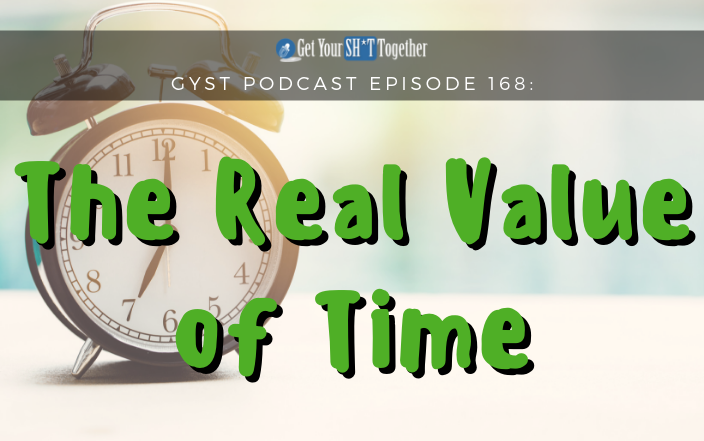
168: The Real Value of Time
168: The Real Value of Time
SHOW DESCRIPTION
Time is money. At least, that is what everyone says. The problem with saying it that way is that people really don’t understand how much more valuable your time is than money. We exchange our time for many things in life; for laughs, for companionship, for money, for growth, and for frivolous things. So, just how valuable is your time?
Most people don’t understand or really know what their time is worth. In our lives, most of us have jobs where we exchange our time and effort for money that we use to pay bills and buy stuff. A business will hire you and define what your actions or tasks should be while you are on the clock. They determine what they are willing to pay for a person’s time to do said tasks or make such efforts. You decide whether your time is valued correctly by the business or if you think your time is more valuable if spent elsewhere.
Rohit draws a great comparison of time and value when discussing mowing the lawn. If you feel your time is worth $30 an hour, but there is a neighborhood kid who will mow your lawn for $10, you will come out ahead by $20 by letting this kid mow the lawn for you. However, if you are not spending that time in a productive manner that leads you to make that $30, you have wasted your time and your money. Only you can determine if your time is more valuable or not. Your decisions tell everyone else-and more importantly you yourself-what you think your time is worth.
Another thing to consider is “Are you filling time, or fulfilling your time?” Many of us will do things that just fill time. You know. Its those times when you don’t know what to do, so you sit down and turn on Netflix, Hulu, or cable, and just flip through to find something to watch because you “have nothing better to do.” That is the ‘average’ person’s view. A successful person will take those moments and look for things that enrich their lives or grow their earning potential. Instead of binging on a new show, grab a book, or look for ways to develop a new skill. I cut cable and streaming services because I found I was just filling time and wasting money. Instead, I started watching YouTube training videos on how to edit videos and build a growing stream channel audience. Find a way to get value out of your time because you will never get it back. We are only here for a limited time. How will you spend your time?









